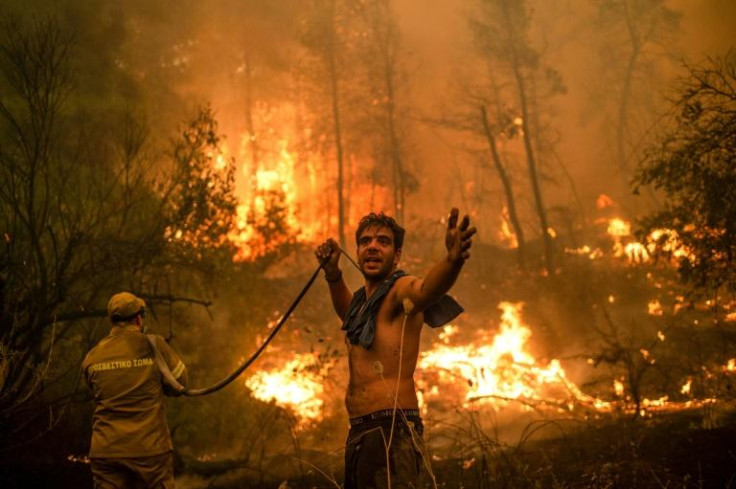Heatwaves pose risk to food security of entire planet, warn scientists
Some projections suggest that up to 200 million more people could be at risk of hunger because of climate change by 2050.

Climate change is causing record-setting temperatures to become more frequent. It has become the biggest threat to the survival of humanity. Scientists and researchers have been saying for years that we need to take steps to ensure that the planet does not get any warmer, but to no avail.
Now, researchers have warned that frequent heatwaves pose a threat to global food security. They have warned of an increasing risk of crop failure if steps are not taken immediately.
The warning comes at a time when blistering heatwaves have swept through Europe. Forecasters have even warned of a fourth heatwave hitting southern Europe next week.
Authorities in Italy, northeastern Spain, Croatia, Serbia, southern Bosnia and Herzegovina, and Montenegro have even issued red alerts. The forecasters believe that this weather is expected to last until around the end of July.
The heatwaves pose not only an immediate threat to travel, tourism, and health but will also have a long-term impact.
"Our food system is global. There are growing risks of simultaneous major crop losses in different regions in the world, which will really affect food availability and prices. This is not what we're seeing right now, but in the coming decades that's one of the things I'm really scared of," The Guardian quoted John Marsham, professor of atmospheric science at the University of Leeds, as saying.
Some projections suggest that up to 200 million more people could be at risk of hunger because of climate change by 2050.
In 2013, a study by researchers at Exeter University, published in the journal Nature Climate Change, found that global warming is spreading crop pests towards the North and South Poles by around 3km every year.
The number of crops lost through pests would feed almost 9% of today's global population, - about 648 million people.
Another study revealed that by 2050, more than 500,000 people a year worldwide will die from the effects of climate change on food supplies. The study published in The Lancet shows that humans will be forced to eat around 3% less food every day in 2050; a change that will have life-threatening consequences.
The researchers said that even under the most optimistic of scenarios, humans will die from climate change-related effects.
Marsham also highlighted how high temperatures can lead to an increase in oceanic heatwaves as well. Marine heatwaves, mass fish die-offs, wildfires, droughts, and floods have already become all too common over the past few years. No country or region has remained immune from rising global temperatures.
Oceans soaking up 90 percent of the excess heat from global warming have caused marine heat waves that are killing marine species every year. Last year was the hottest year for the world's oceans.
Similar incidents of mass fish deaths have been reported across the world over the last few years. In the UK, around 100 roach fish were found dead at Belper River Gardens in Derbyshire after temperatures went past 30ºC in the area last June.
In August last year, Polish authorities recovered 100 tonnes of dead fish from the Oder River that flows through Poland and Germany, prompting governments to take action and work out the cause behind these mass deaths.
A study by the NGO International Rescue Committee (IRC) also made similar claims and added that climate change will accelerate humanitarian crises around the world in 2023.
According to a report by the UN's World Meteorological Organisation (WMO), two million people have already been killed by extreme weather, climate, and water-related events since 1970.
The United Nations has also time and again warned against the dangerous consequences of increasing global temperatures. The organisation now believes that "climate change is out of control."
© Copyright IBTimes 2025. All rights reserved.






















